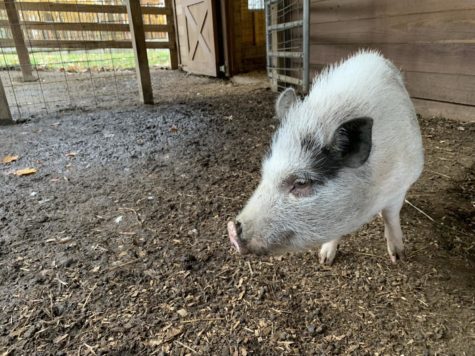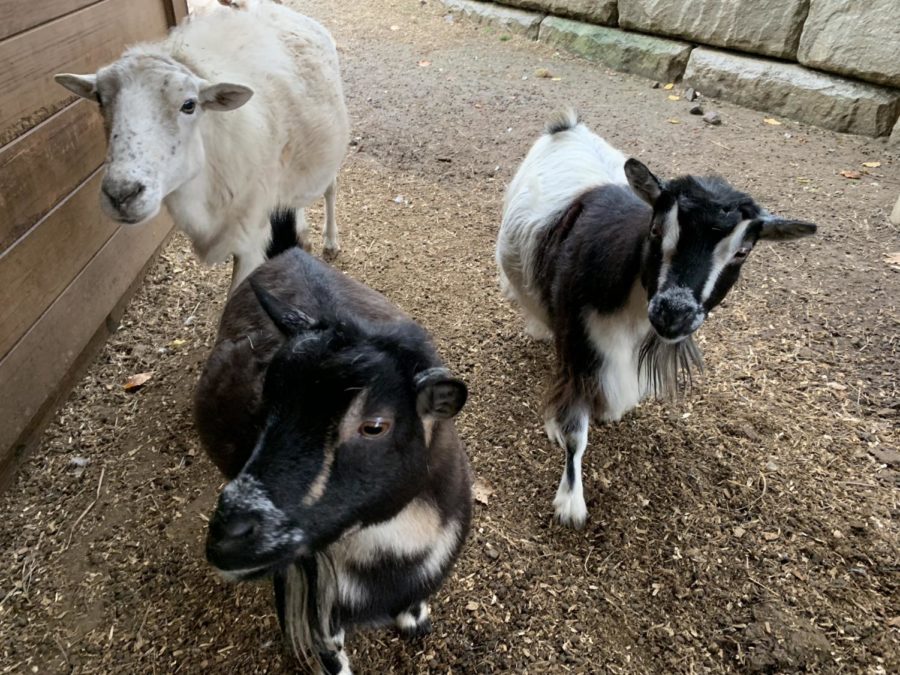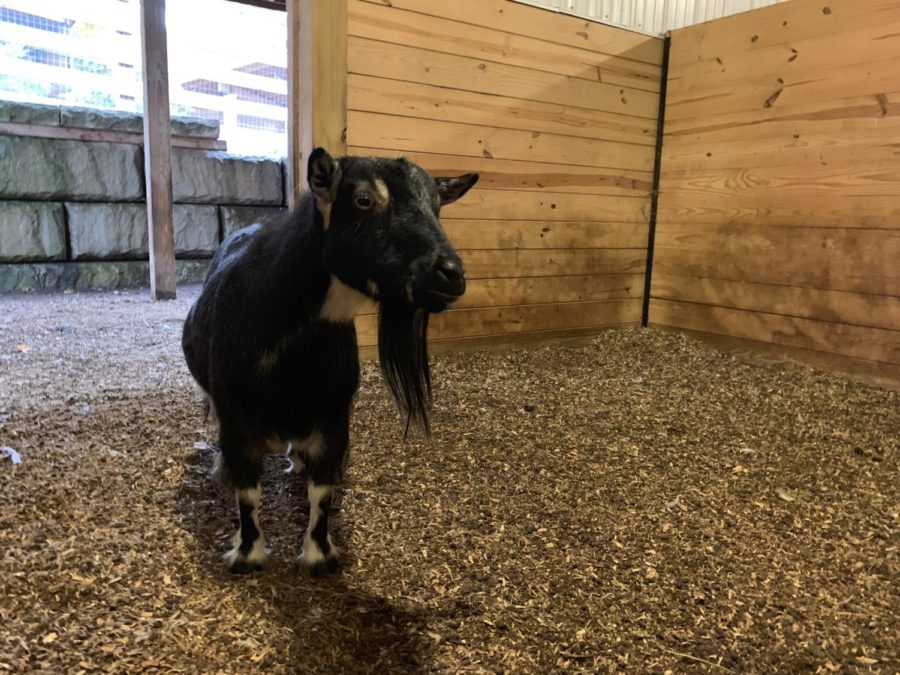Pigs and Goats and Sheep, Oh My! What does it take to be an Animal Keeper?
A variety of animals are taken care of at the Environmental Center by Pace students.
In a world of muddy pigs, loud chickens, and friendly sheep, there have to be patient and loving people to take care of them. The Environmental Center at Pace has a whole community of students who act as animal keepers to help this little ecosystem thrive. Taylor Ganis and Precious Hose are just two of the many students who are tough enough for the job.
For Ganis, an Environmental Studies student, this is not a new role for her.
“I had chickens when I was younger,” she laughed. “I raised them. I also worked at a kennel, and I’m a dog walker”
Ganis considers her on-campus job to be fun and friendly.
“In the mornings, we come in, we clean up, we feed [the animals], we let them out to run around in the pasture, and we play with them to get them comfortable with the human touch,” she explained.
The on-campus job is not exclusive to environmental studies majors. Precious Hose is a criminal justice student but has always had a passion for helping and working with animals.
“I’m originally from Hawaii,” Hose began. “I wanted to branch out of myself and get to know the area, it was very different from me coming from Hawaii to New York, the culture is very different for me.”
Her family raised many types of animals in her home in Hawaii, including pit bulls, goats, and chameleons.
“I lived in a more rural area,” she said, “so it was very natural for me to be in that kind of environment. When I came up to Pace, I was looking for something that was similar, and I didn’t know our Environmental Center was this extensive, so I came up here for the first time during my first week and it was very exciting.”
The Environmental Center does not only offer a way to make money on campus but it also boasts a calming space that can be helpful during times of stress.
“It’s really therapeutic, especially during stressful times,” Hose said. “During midterms and final,s I’m up here every single day, even if I’m not working.”
Both Hose and Ganis agree that this job is not for everyone.
“You have to love the animals; don’t just pretend you do to get the job,” stated Ganis. “Love them because then it will be fun, sometimes you have to clean up poop, so if you don’t love it then you won’t enjoy it.”
“You have to have patience in this job,” Hose began. “Be willing to give the animals a lot of love, because usually in their previous experiences they were treated very badly.”
Many animals at the Environmental Center were rescued from unsafe or unfitting homes, including a pig named Milo and an old barn owl. The Environmental Center and those who work there help to bring these animals back to a true state of health and happiness.

Milo the pig.
“We just want to make people aware of the environment and aware of nature,” states Ganis. “We should live with them [animals], not own them.”
While this on-campus farm is home to the students who work there, many others do not even know of its existence.
“I wish it was more broadcasted to the Pace community,” said Hose. “A lot for students don’t realize we have the Environmental Center up here, especially because it’s so out of the way. It’s not really well known.
To change this, the Environmental Center hopes to begin a relationship with the Counseling Center and create programs for students during times of stress. For students interested in the large variety of on-campus jobs, they can can talk to Career Services or visit their website at careers.pace.edu.
Your donation supports independent, student-run journalism at Pace University. Support the Pace Chronicle to help cover publishing costs.



